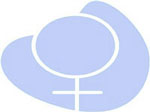FIRE July 2006 |
|
Women activists demand a voice for
women and women's perspectives by Margaret Thompson, FIRE/RIF July 20, 2006 The cycle of violence has exploded across Israel’s northern border with Lebanon, with thousands of Lebanese, Israeli, and Palestinian civilians caught in the middle, threatening a regional war. An estimated 300 people have been killed in the Israeli attacks on Lebanon since July 12, many of whom are civilians. Likewise, Hezbollah forces are firing rockets from southern Lebanon across the border into northern Israel, where 29 Israelis have died, including 15 civilians. Likewise, violence has surged in the Gaza Strip since June 25th with military attacks on the zone by the Israeli military in reaction to the kidnapping of an Israeli soldier by Hamas. More than 100 people have died in the recent attacks. The Israeli military incursions into Lebanon were in response to an attack by Hezbollah on July 12, in which 12 Israeli soldiers died and two were captured. Hezbollah leaders said they wanted to exchange the soldiers for Palestinian prisoners in Israeli citizens, an estimated 10,000 people, including children. To add to the complexity of the crisis, US President Bush says that Israel has "a right to defend itself against terrorism" and blames Hezbollah for the violence. He also holds responsible Iran and Syria whom he claims are behind the attacks and providing the rockets to Hezbollah. But as the civilian death toll mounts, both Israel and the US are finding it more difficult to defend their support for the military aggression. Women demonstrate and march for peace throughout the region Women are holding peace demonstrations daily all over the region, demanding an end to the violence, and urging use of diplomacy and peace negotiations rather than brute military force and attacks which are taking such a heavy toll on the civilian populations, according to Lily Traubman, a human rights and peace activist from Israel who talked to FIRE. Activists are also calling for a greater presence of women in leadership and women’s perspectives in media, said Gila Svirsky, feminist human rights and peace activist from Israel. Women’s international and regional human rights and peace groups have also called for an end to the violence, including attacks by Israel in Gaza and across the border into Lebanon, as well as the offensive by Hezbollah into Israel. MADRE emphasizes that all parties in the crisis are violating international law, the Hague Convention and the Fourth Geneva Convention, which criminalize deliberate attacks on civilians.
Debates continue in the
United Nations with little progress The Israeli attacks in Gaza prompted proposal of a UN resolution urging that the offensive be halted. Despite considerable international support, the measure was vetoed by the United States at the Security Council meeting last week. The Israeli representative to the United Nations, Dan Gillerman, has admitted that the true intentions of his country go beyond liberating the captured Israeli soldiers. Israel is determined to eliminate the "cancer of terrorism" in Lebanon, and he said that "we will do all that is necessary with all measures that are needed without a definite timetable." But he said that Israel "has no intentions to invade" Lebanon, this occurred at dawn on July 22nd. The Lebanese ambassador to the UN told the Security Council that the attacks and blockade imposed on Lebanon are evidence of the determination of Israel to "kill and destroy" and conduct "scorch and burn" type campaigns for which they are well known. He reiterated that the Lebanese government had no previous knowledge, nor did they endorse the capture of the Israeli soldiers, nor the attacks of Hezbollah against Israeli territory. Excuses for military attacks and war For the activist Lily Traubman of the organizations Bat Shalom and Women in Black, the objective of the Israeli government is to destabilize the zone in order to intensify the Arab-Israeli conflict, so "it is a question of interests, of groups that have an interest in continuing the conflict so as to be able to continue dominating." She also said that the unilateral move of the Israeli settlers from Gaza "was a not a way to move toward peace but was used to claim that there is no one to talk to. We left Gaza but we didn't end the occupation. They say that those who are responsible for Hezbollah are Syria and Iran. But so far they haven't attacked Syria, but many of us suspect that this is one of the goals." International and local media reports both inside and outside the region feature mainly male military leaders with their views on the siege. But women’s voices and perspectives need to be heard, and also coverage of alternative solutions to the crisis, according to Gila Svirsky, feminist human rights and peace activist from Israel. Humanitarian crisis deepens with greatest devastation for children Meanwhile, the humanitarian crisis in the Gaza Strip continues to escalate, with 1.4 million people facing severe shortages of water, food, medicine and electricity caused by Israeli’s continued attacks on that area. Power plants have been bombed, knocking out electricity throughout Gaza, including in its 22 hospitals. International aid shipments of food and medicine are not allowed to enter Gaza, threatening hundreds of thousands with starvation and suffering from disease and injury. According to MADRE, “Children, in particular, are psychologically harmed by these frightening around-the-clock raids, which have produced panic attacks, sleep disturbances, bedwetting and other detrimental effects amongst tens of thousands of children. These raids are a clear violation of the Convention on the Rights of the Child, to which Israel is a signatory.” MADRE has launched a children’s campaign to raise funding for trauma counseling and emergency health services (see website at: www.madre.org). Sources
used:
|
Sound
files and photos: Feminist International Radio Endeavour (FIRE)
You may use the information from FIRE (www.radiofeminista.net
) citing FIRE as the source
